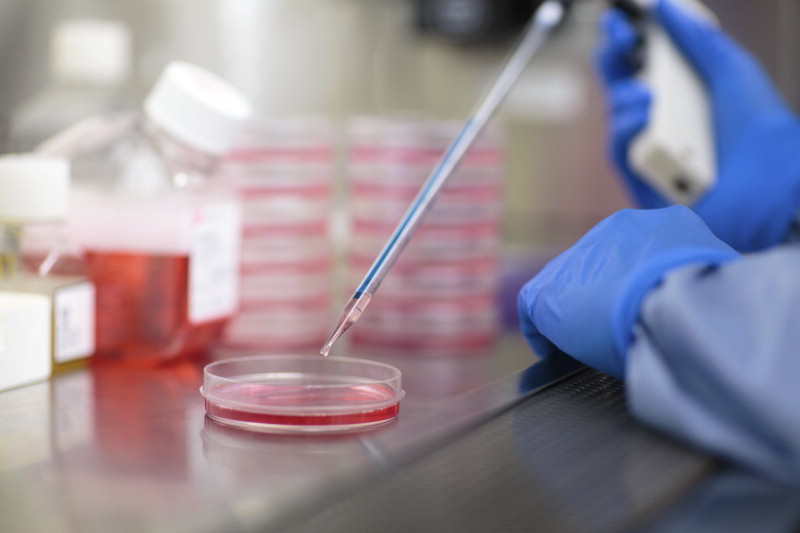-
Featured News
Expert Alert: Mayo Clinic orthopedist shares perspective on regenerative medicine

ROCHESTER, Minn. — Regenerative science has advanced next-generation technologies from the research bench to potential clinical care options. But in the rigorous development of patient therapies, it is critical to validate the safety and efficacy of regenerative solutions.
Shane Shapiro, M.D., medical director of the Regenerative Medicine Therapeutics Suites on Mayo Clinic's Florida campus, encourages patients to educate themselves to make informed choices about their care. The Suites deliver regenerative therapies for a variety of musculoskeletal injuries and conditions and for dermatologic applications.
"In general, regenerative medicine is regarded with much hope, but with that has come much hype," says Dr. Shapiro. "Treatments should always emphasize the evidenced-based standard of care predicated on best practices and validated science.”
Dr. Shapiro offers three considerations for musculoskeletal regenerative care:
1. Orthobiologics are a new regenerative treatment option.
Most patients with torn ligaments, pulled muscles, joint pain and injured tendons heal with standard therapies. However routine treatment with gentle pain relievers and physical therapy is not effective for all patients with chronic injuries. And for patients with degenerative diseases, such as arthritis, only palliative care is available.
In these cases, orthobiologics can bridge the treatment gap for patients who do not respond to standard treatment but are not ready for joint replacement surgery. Orthobiologics use biological agents with growth factors to activate healing. For example, there are therapies that use platelets that then are injected into the area of the patient's injury.
"For people who need regular treatment, orthobiologics, like platelet-rich plasma spun from a patient's own blood, often enable people to live active lives until there is another option for them like joint replacement," says Dr. Shapiro.
A second option that is relatively new to clinical practice is bone marrow aspirate concentrate injections. Bone marrow aspirate is concentrated bone marrow that contains stem cell and many other cells that assist with healing.
2. Regenerative therapies are not a miracle cure.
"Regenerative therapies are increasingly being considered to supplement the spectrum of traditional treatments," says Dr. Shapiro.
Before Mayo Clinic patients receive any regenerative treatments, they are referred to the Regenerative Medicine Consult Service, where they receive education and are offered access to the appropriate Mayo Clinic specialist team.
3. Regenerative medicine is still evolving.
Regenerative medicine is an emerging field. Physician-scientists are learning and advancing the science every day. Mayo Clinic performs regenerative therapies that have been studied rigorously over many years.
"There are 10 randomized controlled trials over 10 years to support the use of platelet-rich plasma in arthritis to relieve pain. There are 18 randomized controlled trials that overall provide scientific evidence supporting the use of platelet-rich plasma in rotator cuff surgery to help with healing," says Dr. Shapiro
In addition, Mayo Clinic is the first academic medical center to conduct a randomized controlled trial on bone marrow aspirate concentrate.
There is still much to learn, Dr. Shapiro says, and physicians are continually performing research and applying knowledge to refine the procedures.
"We continue to study and refine our experience," says Dr. Shapiro.
Learn more about Dr. Shapiro's research in these journal articles:
- "A Prospective, Single-Blind, Placebo-Controlled Trial of Bone Marrow Aspirate Concentrate for Knee Osteoarthritis" (The American Journal of Sports Medicine)
- "Quantitative T2 MRI Mapping and 12-Month Follow-up in a Randomized, Blinded, Placebo Controlled Trial of Bone Marrow Aspiration and Concentration for Osteoarthritis of the Knees" (Cartilage)
- "Preparing Regenerative Therapies for Clinical Application: Proposals for Responsible Translation" (Regenerative Medicine)
###
About Center for Regenerative Medicine
Mayo Clinic Center for Regenerative Medicine seeks to integrate, develop and deploy new regenerative medicine products and services that continually differentiate Mayo's practice to draw patients from around the world for complex care. Learn more on the Center for Regenerative Medicine website.
About Mayo Clinic
Mayo Clinic is a nonprofit organization committed to clinical practice, education and research, providing expert, comprehensive care to everyone who needs healing. Learn more about Mayo Clinic. Visit the Mayo Clinic News Network.
Media contact:
- Susan Buckles, Mayo Clinic Public Affairs, 507-284-5005, newsbureau@mayo.edu







